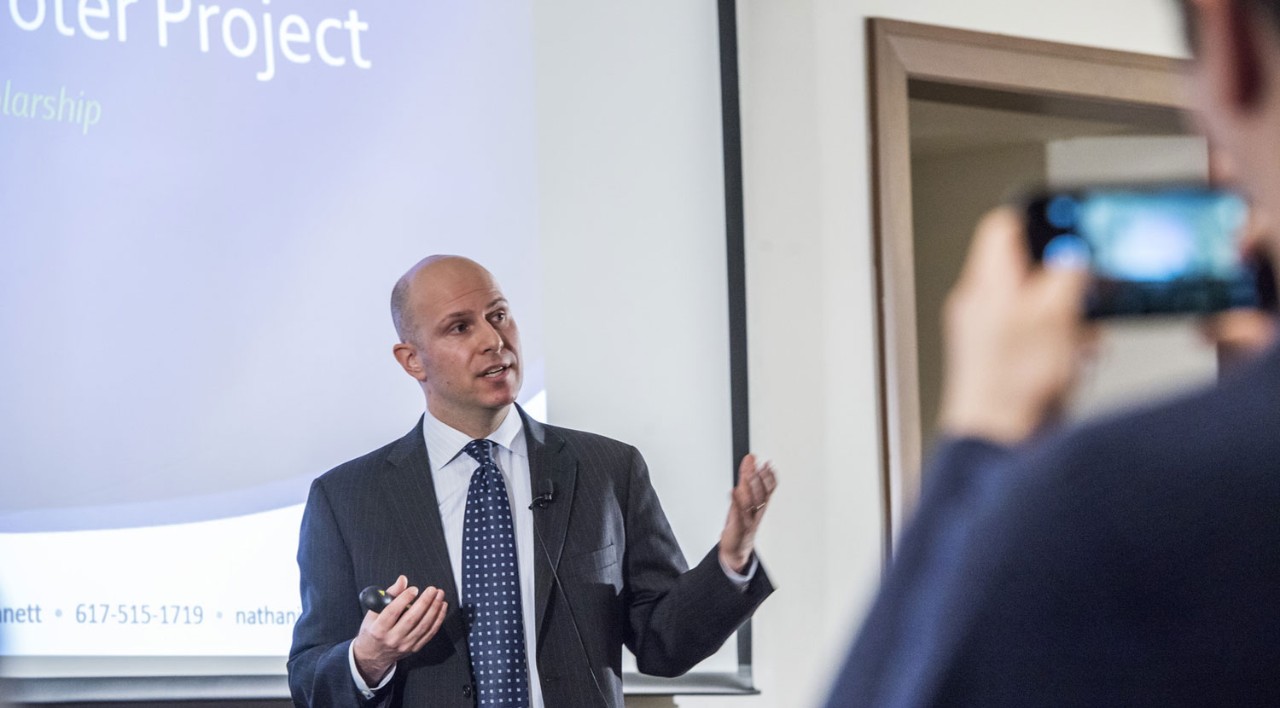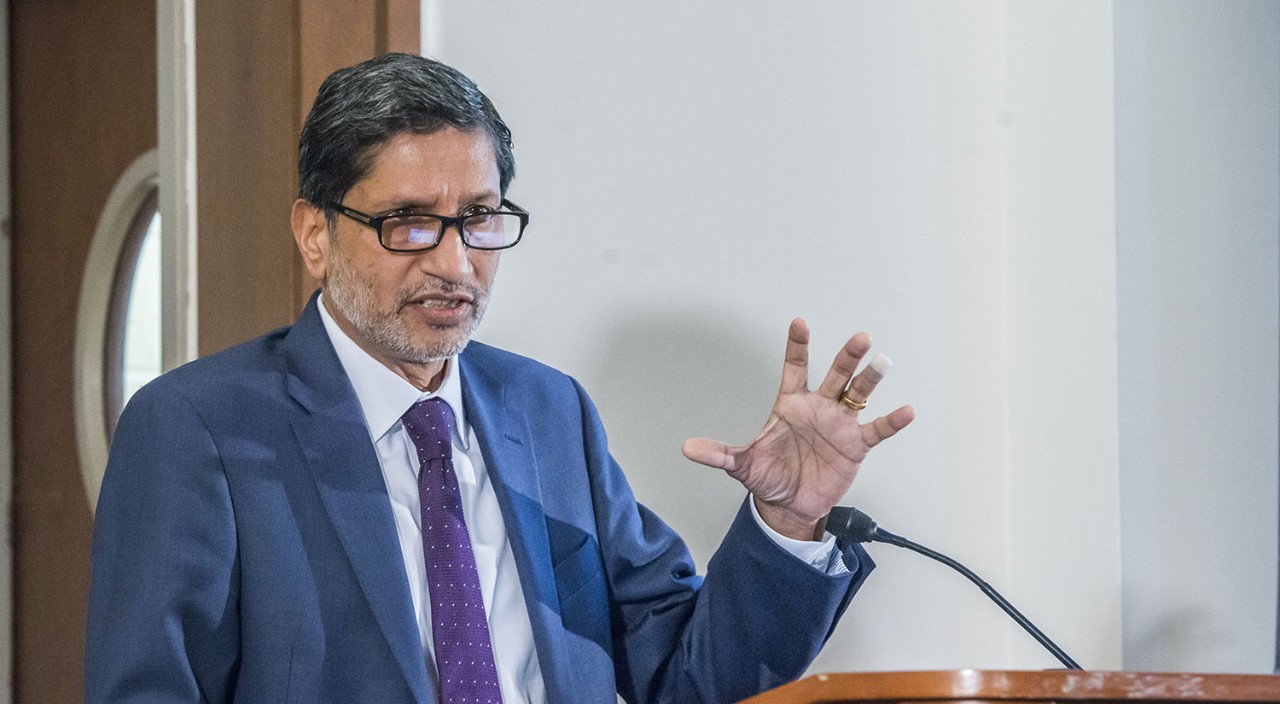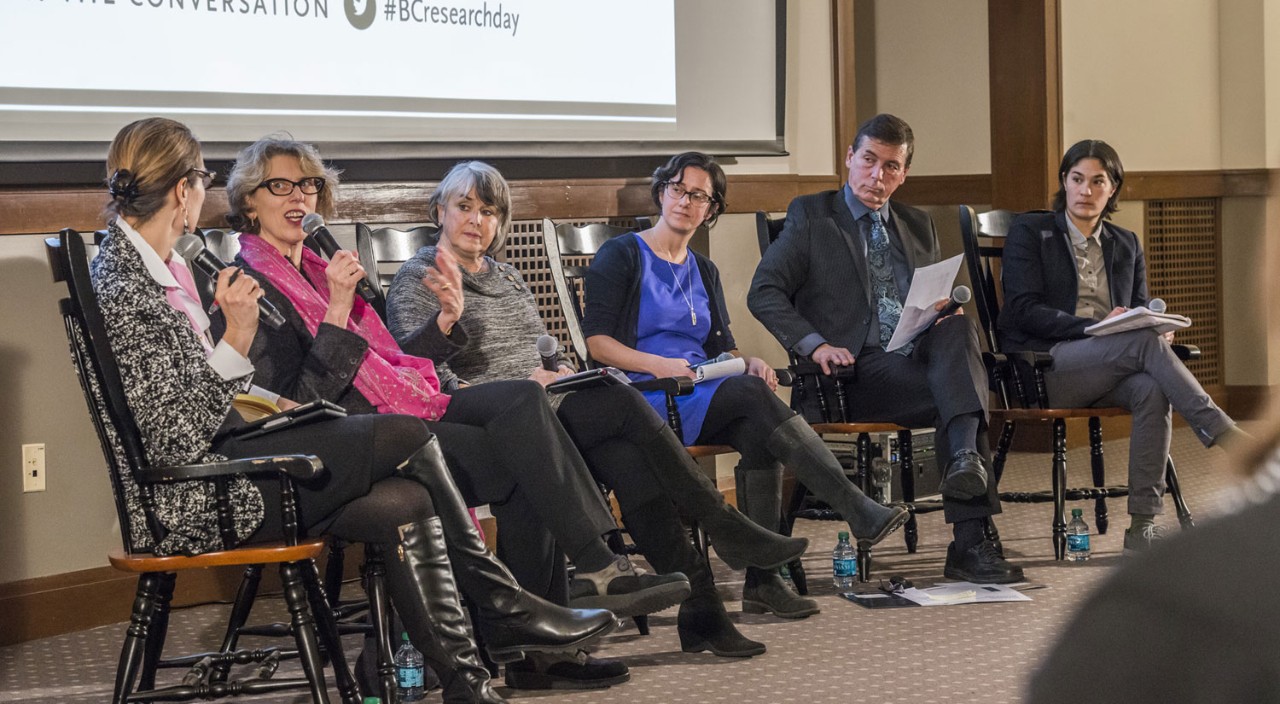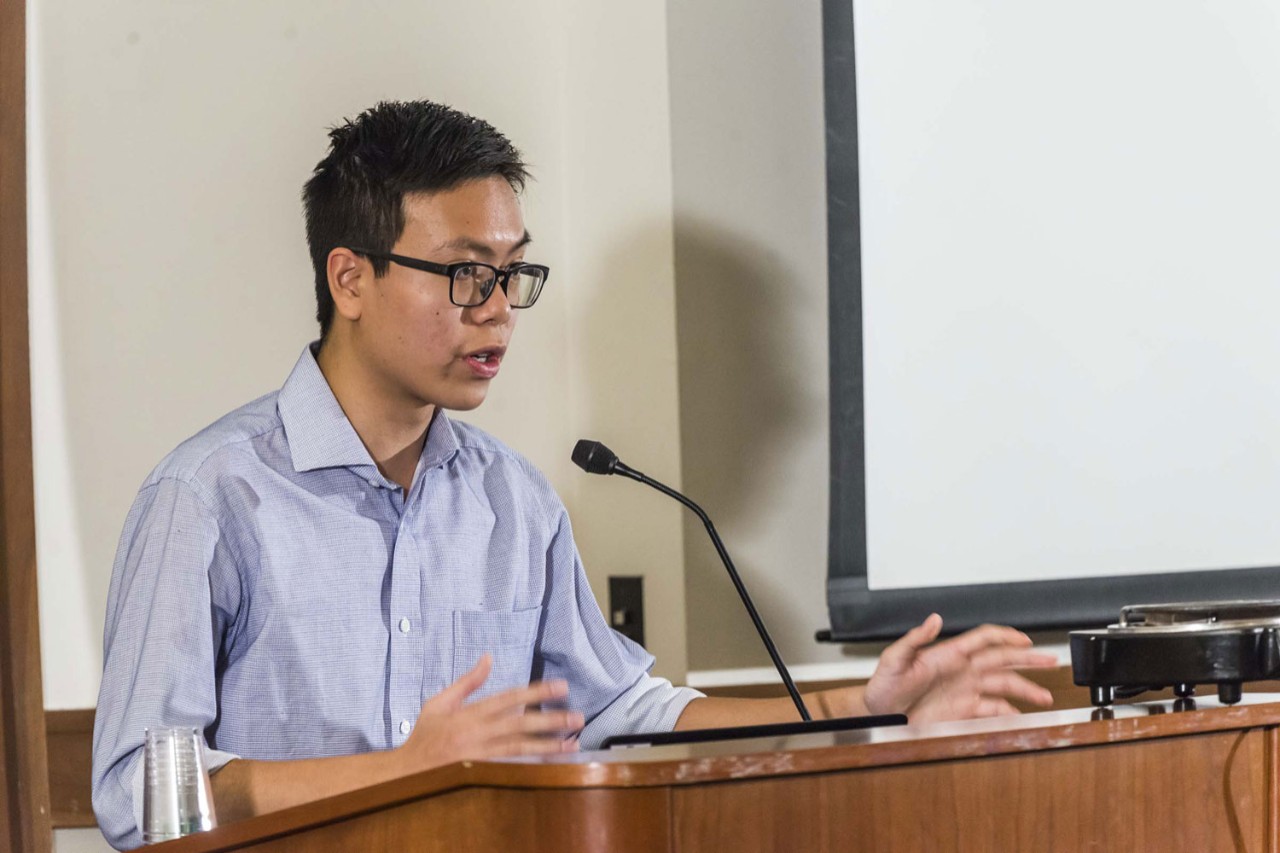BC paleoclimatologist Jeremy Shakun of the Department of Earth and Environmental Sciences was among faculty presenters at Advancing Research and Scholarship Day December 5. Shakun is co-author of a new report in the journal Nature that provides the first detailed climatological history, dating back 7.5 million years, of the Greenland ice sheet. (Photo by Gary Wayne Gilbert)
One of the U.S. environmental movement’s biggest problems is that environmentalists don’t vote, Environmental Voter Project founder and CEO Nathaniel Stinnett J.D. ’05 said in his keynote remarks at the University’s third Advancing Research and Scholarship Day.
“Regardless of party affiliation, environmentalists need to address their turnout problem,” said Stinnett, who worked for many years as a political and campaign strategist. “We need to start voting for one simple reason: politicians want to win elections. To do that, they focus on issues of importance to voters, not non-voters.”
After using Big Data and predictive analytics to identify ardent environmentalists who do not regularly vote, the Environmental Voter Project then employs digital and traditional strategies to get them to the polls.

Stinnett’s talk kicked off the afternoon showcase of faculty and student research focused on the theme “Environment and Society: Research for a Changing World.”
“This year’s theme is arguably the defining issue of our time – developing, building, and sustaining a habitable planet,” Vice Provost for Research Tom Chiles said in his welcoming remarks.
"Problems associated with climate change require rigorous research, the kind of research being conducted at Boston College," he said. "It is a complex problem and requires a multi-disciplinary and a trans-disciplinary approach. Throwing science at a problem like climate change is not the only answer. Solving it requires input from the sciences, and expertise from the humanities, as well as social science.”
Undergraduate students present their research as part of the University’s third Advancing Research and Scholarship Day.
Video produced by Paul Dagnello; photo by Lee Pellegrini.
The non-partisan Environmental Voter Project has identified as many as 15.7 million environmentalists who either don’t vote or don’t vote regularly. Stinnett, whom the online magazine Grist recently dubbed “The Voting Guru,” was presented with the Distinguished Alumni Research Award by Boston College President William P. Leahy, S.J.
Fr. Leahy praised Stinnett and the BC faculty and student researchers for their work, which he said should advance disciplinary knowledge and also sound a “call to action.”
“At Boston College, it is important we live up to our heritage as a place that engages with questions of real significance; that we translate those questions into research that has an impact on the world around us and ultimately results in real change,” Fr. Leahy said.
Boston College faculty presenters included Assistant Professor of Earth & Environmental Sciences Jeremy Shakun, who studies climate change; Assistant Professor of Economics Richard Sweeney, who has explored the impact of subsidies on clean energy initiatives; and Professor of History Conevery Bolton Valencius, who is at work on a book about earthquakes induced by hydraulic fracturing practices.

Boston College School of Social Work Dean Gautam N. Yadama discussed his research of the environmental and health costs associated with people in rural India using traditional fuels and kerosene to cook, which requires poor women to spend the day foraging for firewood.
Every day is a hunt for fuel, he said, an activity that "has enormous consequences – for women’s bodies, the ecosystem, and social and health outcomes.”
"Problems associated with climate change require rigorous research, the kind of research being conducted at Boston College. It is a complex problem and requires a multi-disciplinary and a trans-disciplinary approach. Throwing science at a problem like climate change is not the only answer. Solving it requires input from the sciences, and expertise from the humanities, as well as social science."—Vice Provost for Research Tom Chiles

School of Social Work Professor of Macro Practice Tiziana Dearing moderated a panel on environmental justice, featuring Professor of Sociology Juliet Schor, Carroll Professor of Nursing Judith Vessey, Assistant Professor of the Practice of Philosophy Holly Vandewall, Professor of Political Science David Deese, and Assistant Professor of Earth & Environmental Sciences Corinne Wong.
Later in the program, the focus turned to undergraduate student research, which examined the environmental impact of killer marine plankton, carbon emissions, factory work, technology transfer practices, and climate policy.
Earth and Environmental Studies gradate student Elisabeth Ames, Boston College Law School student Liam Holland, and Sociology and Philosophy double major Christopher Yu '18 delivered presentations about their research.

Yu, a member of the Gabelli Presidential Scholars program and a native of Hong Kong, described the month he spent as a summer worker assembling consumer-grade deep fryers in a factory in China—part of his experiential research project studying the environmental conditions of manufacturing workers as the emerging face of Chinese state capitalsim.
He and his co-workers typically worked from 8 a.m. until 10:30 p.m., six days a week, earning a fraction of a standard U.S. wage.
“After 12 hours, my arms were numb and I felt like a robot,” he said.
Student research also was showcased at an exhibition hall, where guests could view the work and discuss it with the scholars.

—Ed Hayward / University Communications




